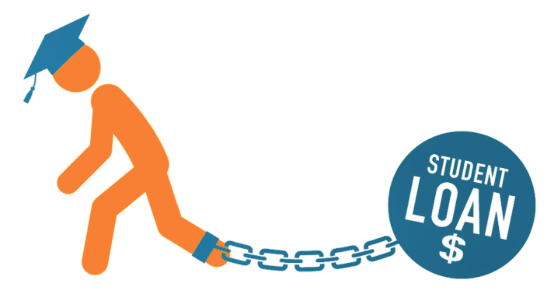It is Spring! You know what that means? Many people are receiving college acceptance letters if not have already made decisions on what university they will be attending in the fall. On that note, I’d like to say congratulations to everyone. Nine years ago, I received my acceptance letters and decided to attend UC Santa Barbara. I had no idea what I was getting myself into at the that time, but it was one the best decisions I have ever made.
I first visited the campus in 2008, which is when I realized that I wanted to go to UCSB (GO GAUCHOS!). During my visit, I remember asking a freshman at the giftshop, “What is one piece of advice that you would have appreciated before attending UCSB?” She replied, “Save as much money as you can before coming, things can get very expensive.”
I wish I would have known to save as much money as I could since I was 16 and had my first retail job. But I didn’t.
I was a first generation college student, and I had no idea what it meant to be an adult or better yet how expensive it would be to live on your own. My family didn’t have enough resources to support me financially, and I realized very quickly that I needed a job….or two. I wish I would have been more prepared since the beginning. The secret I want to share is that finances are very important before, during, and after receiving your degree. Indeed, everyone knows how to add, subtract, and multiply. But how many create a four-year college plan? Many folks who come from the same socioeconomic background as I did do not. I wrote this article to shed some light. Below, I describe a few tips that I now reflect on, and I hope these tips will help some of you as you prepare for the fall. *Disclaimer* I am in no way shape or form a financial adviser.
- Do the Math!
Add the total cost of tuition, books and the cost of living (i.e. rent, food, bills, transportation, etc). If you don’t know what these cost are, find out and research. It is critical to know what your yearly cost and budget is. Most importantly, if you do qualify for financial aid, find out how much the school going to cover for your for tuition because every college is different. Make sure you compare all yearly expenses between your top choices, you will see that there will be a huge difference between them. The best way to do this is to create a tracker with expenses, aid, budget, loans and so forth.
*Even if you are living on campus the first year, knowing how much it will cost to live off campus is SO IMPORTANT! At UCSB, only a small number of folks were able to stay on campus after freshman year, and I was not one of them.
- Save money.
If you are able to work before the fall starts, save every cent as an emergency fund. In other words, don’t use it until you absolutely have to. Do not waste your time, use it wisely. If you can work during summers or year-round, then do so. You can avoid borrowing loans if you plan to work during your college years. I worked the entire 4 years while I was at UCSB, and it literally saved me well over $30,000 in student loan debt. Just make sure to stay focused on your education and graduation as soon as you can. Making money could seem like a good idea (trust me it crossed my mind a few times that I could work and not go to school).
- Don’t take out more loans than you need
Going back to knowing your numbers: DO NOT MAXIMIZE your loans if you don’t have to. I personally took out more loans than I needed. Now, it has taken me six years to get my balance down to 50% of the total debt. Some of the loans were used towards travel, getaway trips, and other personal leisures. I personally do not regret my experiences, and it cost me greatly. But I wish that I was debt free at this moment.
- Credit Cards
Avoid getting a credit card by all means. See credit cards as a tool to build credit but do you need one now? Probably not. If you must get a credit card, don’t use it to purchase unnecessary things, only use it to purchase things that you otherwise would be able to afford with cash. For example: pay for groceries and for gas with a credit card but be sure you pay your credit card balance as soon as possible and keep your balance at 0 every month so that you don’t have to pay INTEREST!
These are a few things I know now but only because I made many small mistakes while attending college. But in all honesty, I spent the first few years after college paying off my college loans very slowly. Now, I’m hoping to finish paying off my school loans aggressively in the next six months. You don’t learn about these tips in high school especially if attend the public schools that I did.
Melissa Salgado
Latest posts by Melissa Salgado (see all)
- Fundadores Latinos Son Importantes: Joel Portillo Comienza Una Nueva Escuela KIPP Preparatoria en el Área de la Bahía - November 7, 2019
- Latino Founders Are Important: Joel Portillo Starts New KIPP Bay Area High School - October 23, 2019
- Cómo Construir una Cultura de Colaboración Entre Padres y Escuelas - August 13, 2019
- How to Build a Collaborative Culture Between Parents and Schools - August 8, 2019
- Seleccionando la Escuela Preparatoria Correcta: Consejos de Una Consejera de Colocación, de Escuela Preparatoria - July 11, 2019

